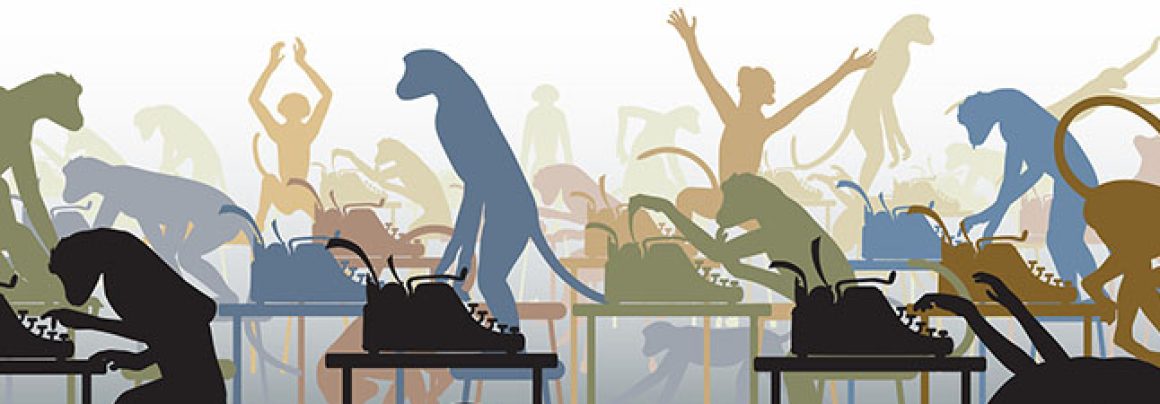As he descended into paranoia at the end of his life, poet Delmore Schwartz sent telegrams to the U.S. Ambassador to the United Nations, harassed friends on the phone, and left a stray cat at the offices of New Directions, his publisher.
Delmore Schwartz: The Life of an American Poet, James Atlas

“So? What do you think of my coming-of-age roman a clef?”
Whew–glad to get away from that guy, even if did get me in the door at New Directions, publisher of experimental and innovative fiction. Exactly the kind of house I need to handle my stream-of-consciousness, coming-of-age, roman-a-clef, hyphen-festooned novel.
I’ve schlepped the manuscript all over New York. I’ve licked the stamps on so many SASE’s my little pink tongue is raw. I’ve sat outside editors’ officers, begging, pleading, meowing. I don’t mean to suggest that the experience has been entirely unpleasant–after all, I do get to rub up against receptionists’ panty hose.

“Mr. Thorn, there’s a pussy between my legs here to see you.”
If I had an agent things would be easier, but try getting one! Nobody wants to represent you unless you’re published, but you can’t published without an agent. Talk about chasing your tail! And they wonder how I developed a six catnip mouse-a-day habit!

It’s hard competing with the legions of MFA’s churned out by America’s literary-industrial complex every year. They at least have the option of waiting tables until they can make a living as a writer. Me? I’m the Blanche DuBois of first-time novelists–I have to depend on the kindness of strangers.
Maybe if I jump up on the receptionist’s desk she’ll bump me to the head of the line, ahead of Angry Young Man Novelist slouching in his chair, and Sensitive Oppressed Female Novelist gazing hopefully out the window. It’s worth a shot.
“Hey, babe–what’s shakin’?”
“What a cute kitty!”
That’s the spirit. “Say–I’m kind of in a hurry. I’m 35 in cat years–I age faster than these young tyros.”
“I wish I could have a cat, but my lease says no pets.”
Isn’t that always the way it is. You try to dedicate yourself to literature, but women constantly throw themselves at you because you’re a writer. It’s the occupational hazard–if not the occupation–of a cat of letters. Well, I suppose I could use a scratch under the chin.
“That’s a good kitty!”
“Please don’t patronize me. I’m an artiste. Although that does feel good what you’re doing back there on my tail bone.”
“Would pussums like to see the big powerful editor?”
“Now you’re talking!”
“He’s a huge cat-lover–let me see if he’s busy.”
She buzzes the intercom–I didn’t know those things even existed anymore, but I guess if you’ve got the world beating down your door you need something to keep the hordes of Truman Capote wannabes at bay.

“Rocco the Cat? Well, send him right in!”
Mr. Big answers: “Yes?”
“There’s a Mr. Rocco hear to see you.”
“Rocco the Cat?”
“Yes.”
“Well, why didn’t you say so?”
“I just did.”
“Oh, you’re right. Well–send him right in!”
I looked over my shoulder at my two human competitors and couldn’t restrain myself from giving them my best Cheshire Cat grin, as if to say “Nyah-nyah-nyah-NYAH-nyah. Your work’s derivative and mine’s not!”
The receptionist opens the door and plops my ms. on Mr. Big’s desk, then asks if either of us would like anything.
“I’ll have a water–anything for you, Rocco?”
This is an important meeting, so as much as I’d like a plate of liver ‘n onion snacks, I demur. “I’m fine, thanks.”
She says “Very good,” gets the Bossman an expensive plastic bottle of tap water and closes the door behind her.
“So,” the famous editor says, “tell me a little bit about your book.” This is, as the eminent folk poet Eminem would say, my one shot, my one opportunity. I better not blow it.
“Well,” I begin, “it’s an affecting tale of a young cat’s struggle to find himself.”
“Um-hmm.”
“I was”–I hesitate for a moment, unsure of myself. The competition in the false-memory-fictionalized-memoir genre is tough–I’d better lay it on thick.
“Yes? Go on.”
I lift my paw over my eyes, as if I’m crying. “Abused as a kitten.”

“*sniff* It was HORRIBLE!”
“Really?” the editor says. I’ve got him on the line, just have to reel him in.
“Yes,” I say. “By my older brother–Okie!” I pause to make a sobbing sound into my paws.
“Is that so?” the editor asks. “Don’t cry–that’s a good thing.”
I thought so, but I play dumb. “It . . . it is?”
“Are you kidding? Running With Scissors, A Million Little Pieces? The more controversial and dubious the facts, the better the book!”
“Great!” I said, and I meant it.
“You . . . do have releases from all the parties involved, don’t you?” I gulped involuntarily when I heard those words. “Have you . . . got a hairball?” he asks.
“Well, I don’t actually have them in hand, per se,” I mumble, “if that’s what you mean.”
His face clouded over like the plains of Kansas before a summer storm. “We need those, you know,” he said, rather sternly, his enthusiasm of a moment before gone like a grasshopper in a tornado.
“Well, I don’t think it will be a problem getting one from my mom and dad.”
“Why’s that?”
“They’re empty nesters and would like to stop buying cat food and kitty litter for me.”
“Okay, so they’ve got an economic interest in your success. How about your brother that you mentioned?”

“No way I’m signing that.”
I inhale deeply. “We’ve . . . always been close. I think I can persuade him . . .”
Just then the door flies open and who should come bounding in but my slightly dense brother Okie. He’s a grey tabby, and has gotten as far as he has in life–which is usually no further than the living room sofa–on his good looks, like the high school romeo who ends up mastering a business vocabulary limited to “Paper or plastic?” or “Regular or unleaded?”
“Well, this seems to be Cat Day in Manhattan . . .” the editor says with a mixture of amusement and consternation.
“I tried to stop him,” the receptionist says breathlessly.
“That’s all right, I can handle this,” I say.
Okie jumps on the wide desk of the man with the checkbook and pleads his case. “It’s a tissue of lies!” he squeals. I haven’t seen him get that much emotion into a performance since he horse-collared a squirrel on our back patio.
The editor looks at me and shrugs. “I won’t be able to get this past legal without it.”
I jump on Okie’s neck, trying my best to appear playful. “Let us have a brief sidebar,” I say, as I drag him over to the window and we gaze out on the Manhattan skyline.
“Look, you dingbat,” I hiss into his ear, “for once in your life listen to your first instinct, then do the opposite.”
He gives me a look that says–well, it doesn’t say anything in particular. Okie’s like that, a little slow on the uptake sometimes.
“What do you mean?” he asks
“Play your cards right and we’ll never have to eat Iams low-cal dry cat food again.”
Dawn breaks on Marblehead, as we say back in Massachusetts.
“You mean–you’d share some of your millions with me?”
I give him a disingenuously friendly look. “No,” I say, “but I’ll let you have first dibs at the cat bowl for once in your miserable life.”
Available in Kindle format on amazon.com as part of the collection “Cats Say the Darndest Things.”


























